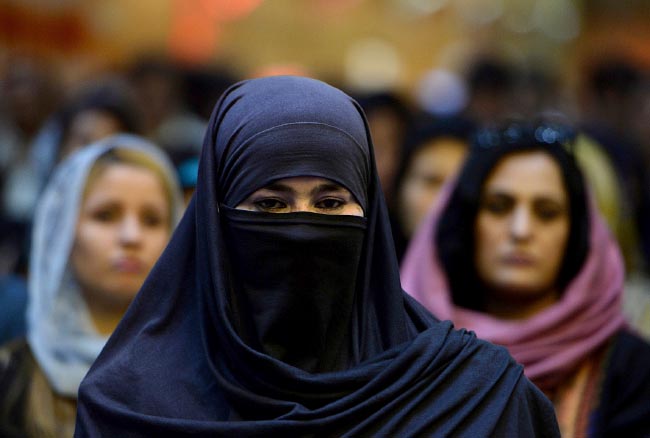Despite the establishment of democratic system in the post-Taliban Afghanistan, Afghan women are not able to exercise their rights and freedom. There are many obstacles before women. They are treated as pariahs in some parts of the country, mainly in the Taliban dominated areas. To view Afghanistan’s history, women left tortuous path behind. The emergence of liberal and fundamental mindsets in the past affected the liberty of women to a great extent.
The historical ups and downs played a crucial role in terms of women’s rights and freedom in Afghan society. For instance, during the kingdom of Amanullah Khan and the last decade of Zahir Shah’s regime, Afghan women were treated equal to men and they were able to take part in social, cultural, and political issues. In this golden time, no cultural restrictions could hamper women’s progress or curtail their social or political role. Within the last decade of Zahir Shah’s kingdom, which is also known as the decade of democracy or decade of Constitution, Afghan Constitution was approved and a free parliamentary election was conducted. This Constitution was said to be the best one comparing to the past. It also put a significant effect in the current constitution. The Constitution forbade any kinds of discrimination between men and women and treated all Afghans equal regardless of their race, color, or creed. After all, women also had part in the assembly of endorsing the constitution. Similarly, in the parliamentary election, four women were elected as MPs for the first time in the history of Afghanistan and two more were appointed in the Senate by King Zahir Shah. The first female minister – in the ministry of health – was also appointed during the last decade of Zahir’s kingdom.
However, to view women’s status in the time of Mujahedeen’s rule, their role was curtailed on a large scale. Women played no social or political role since they were deemed inferior to men. There were no female minister or MP. They had to stay aside from social or political activities.
Worst of all, if women’s rights and dignity are considered during the Taliban’s regime, they were treated as pariahs. The misogynistic view of the Taliban kept women within the four walls and put an end to their social, cultural, or political activities. Women were viewed inferior to men and their human rights and dignity were violated in the worst possible way. The Taliban exercised extremely dogmatic view regarding women for two reasons. First, they did not know women’s rights from Islamic perspective. Second, they foisted their own mindsets upon Islamic tenets and applied their dogmatic ideology under the cloak of religion.
To view the aforementioned facts, Afghan women left two different periods behind. A golden time, when they were deemed equal to men and were not discriminated on the basis of their gender. However, a dark age that they suffered from patriarchal system, misogynistic view, traditional restrictions, etc.
In the post-Taliban Afghanistan where a nascent democracy has been established and human rights discourse is debated hotly, women are supposed to be able to exercise their rights and freedoms without obstacles. Constitutionally, women must not be treated unfairly on the grounds of their gender. That is to say, there is discrimination between men and women neither from legal perspectives nor from religious views. Therefore, they have to be held in esteem.
On the other hand, scores of individuals were against the freedom of women and approved of the Taliban’s approaches towards them. According to them, freeing women from cultural restrictions and misogynistic view could spoil the society and result in moral turpitude. They raised their voice against democratic system and women’s rights and freedom.
To sum up, historical changes affected the rights and freedoms of women in the country. They strongly suffered under dictatorial regimes, dogmatic beliefs, and patriarchal system, especially during the Taliban’s regime. Currently, women are not free from traditional cultures or dogmatic practices. They still suffer from discrimination. Afghan women suffer in one way or another and the democratic discourse could alleviate their challenges to some extent but could not put an end to their sufferings. Although women are equal to men constitutionally, they are not treated equal in collective life.

